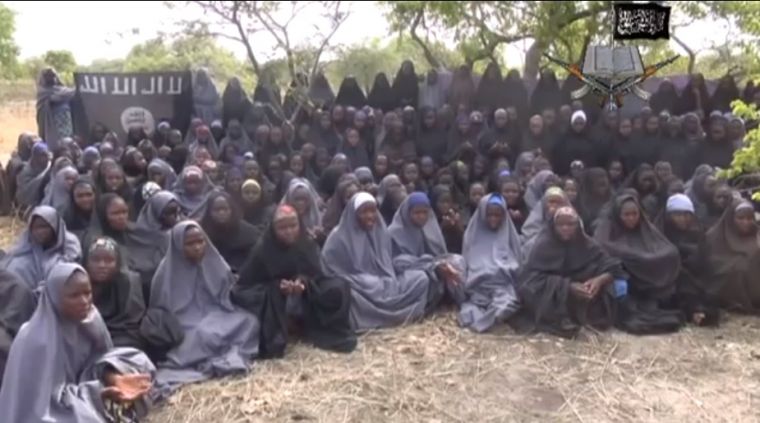Why we must not forget the Nigerian schoolgirls

It's been over 11 weeks since more than 200 young women were taken from their school in Nigeria's Borno state by Islamic extremists, and yet the furore over their kidnapping seems to have subsided. Have we forgotten them?
In the days and weeks following the girls' abduction on April 14 the media was awash with updates – some of the girls managed to escape their Boko Haram captors and shared harrowing tales of the night they were taken, and a video surfaced in which leader Abubakar Sheka claimed responsibility for the kidnapping and threatened to sell the young women into slavery.
Politicians and celebrities alike joined the call for the girls to be bought to safety, with First Lady Michelle Obama, British PM David Cameron, the Archbishop of Canterbury, Mary J Blige, and Chelsea Football Club's Kenneth Omeruo all supporting the #BringBackOurGirls campaign that trended on Twitter.
The international community responded practically by sending aid and expertise to Nigeria; joining with national authorities in the rescue efforts. "Time is of the essence. Appropriate action must be taken to locate and to free these young women before they are trafficked or killed," US Press Secretary Jay Carney declared on May 6.
And yet almost two months since the US confirmed it had a team of experts on the ground in Nigeria, an estimated 180 girls remain missing.
Furthermore, there have been reports of additional Boko Haram kidnappings, and just last weekend several churches were attacked in Kwada village – only six miles from Chibok - with scores of people killed by armed militants.
But as the violence increases, our collective horror at the plight of the kidnapped girls seems to have faded.
"How quickly the outrage passes on from the front pages," an editorial from The Independent newspaper read on Sunday.
"We cannot report on, and the international community cannot act on, every problem in the world, but it is worth trying to sustain the pressure on the few worst cases, and to guard against the temptation to lose interest if immediate results are not forthcoming.
"It may not be possible to 'Bring Back Our Girls' soon, but the more we understand about Nigeria's problems, about Boko Haram, the better."
Rightly, The Independent highlights the wider issues brought to light by the girls' abduction. "One is the security situation in northern Nigeria; the other is the widespread attitude towards women and girls as possessions to be married off, for a dowry, at puberty," the editorial notes.
It is this second issue which is of the utmost importance, and is part of a wider conversation about the treatment of women across the globe, not only by fundamentalists in a foreign corner.
In a world where women are bought and sold, considered as second-class citizens and hundreds of thousands raped each year, we must speak up.
When it's reported that cases of domestic violence in the UK increase by 40 per cent each time England lose a football match, our horror must penetrate deeper than a single, outraged tweet. We must take action.
The call of Isaiah 58 is a call for justice, and it's for us today:
"Is not this the kind of fasting I have chosen:
to loose the chains of injustice
and untie the cords of the yoke,
to set the oppressed free
and break every yoke?
Is it not to share your food with the hungry
and to provide the poor wanderer with shelter—
when you see the naked, to clothe them,
and not to turn away from your own flesh and blood?
Then your light will break forth like the dawn,
and your healing will quickly appear;
then your righteousness will go before you,
and the glory of the Lord will be your rear guard.
Then you will call, and the Lord will answer;
you will cry for help, and he will say: Here am I.
"If you do away with the yoke of oppression,
with the pointing finger and malicious talk,
and if you spend yourselves in behalf of the hungry
and satisfy the needs of the oppressed,
then your light will rise in the darkness,
and your night will become like the noonday.
The Lord will guide you always;
he will satisfy your needs in a sun-scorched land
and will strengthen your frame.
You will be like a well-watered garden,
like a spring whose waters never fail.
Your people will rebuild the ancient ruins
and will raise up the age-old foundations;
you will be called Repairer of Broken Walls,
Restorer of Streets with Dwellings."
The Nigerian schoolgirls are facing untold terrors under their captors, as are millions of women around the world. It's vital we don't abandon them.
By staying silent, we silence them, too.











